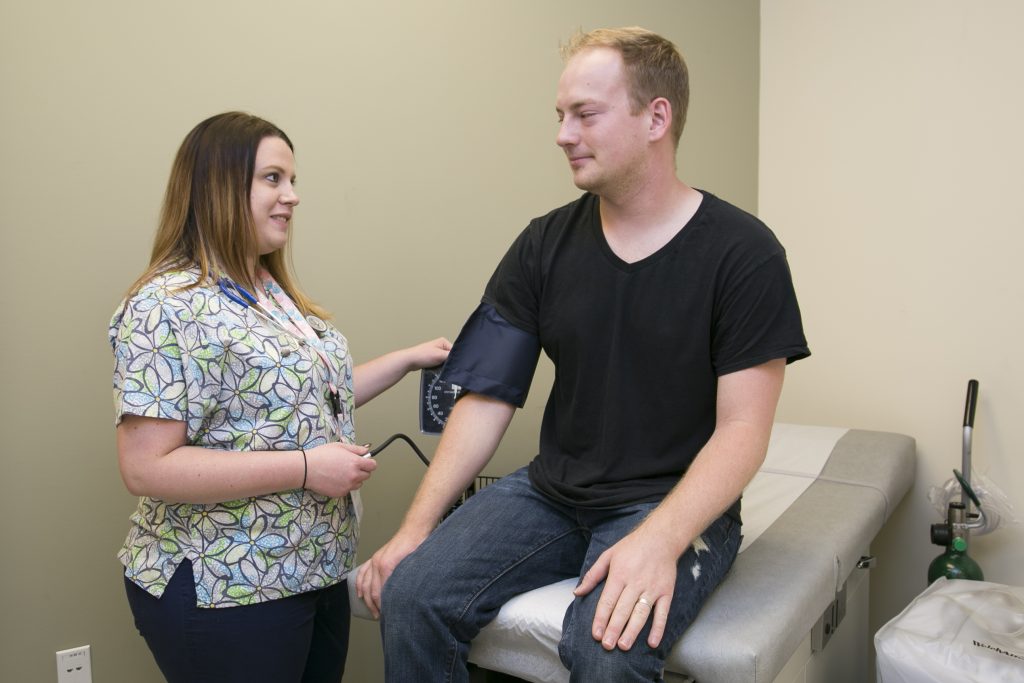Alcohol Abuse and Addiction: What Ohioans Should Know
What should Ohio residents know about alcohol abuse and addiction? Alcohol addiction and abuse are problems across the country. If you live in Ohio, you have specific resources dedicated to recovery, and you also have specific problems.
Overall, alcohol abuse in Ohio has been increasing, and despite the many discussions about drug problems in the state, alcohol is still a serious problem for many people. While the Centers for Disease Control (CDC) states that two drinks a day for men and up to one drink a day for women are the limits, many Ohioans test these limits regularly, putting themselves, their loved ones, and their future at risk.

Did you know most insurance companies will cover the cost of treatment for drug and alcohol addiction? Check Your Benefits Online Now.
Alcoholism in the United States
The National Institute on Alcohol Abuse and Alcoholism states that out of the US population, 18 million people in the United States have challenges with alcohol use. “In 2015, 26.9 percent of people ages 18 or older reported that they engaged in binge drinking in the past month; 7.0 percent reported that they engaged in heavy alcohol use in the past month.”
Alcohol use, abuse, and addiction are prevalent in society, and approximately 62,000 men and 26,000 women die from causes related to alcohol use every year. The misuse of alcohol costs the United States hundreds of billions of dollars every year.
Alcohol Statistics in Ohio
According to Ohio’s 2014 Behavioral Health Barometer, alcohol abuse and addiction is a problem in the state. Alcohol use begins early; according to the report, “in Ohio, an annual average of about 95,000 adolescents aged 12–17 (10.3% of all adolescents) in 2014–2015 used alcohol in the past month.” Around 19 percent of all adults reported binge drinking from time to time. Since three-quarters of the problems with alcohol come from binge drinking, this is a significant problem for Ohio residents.
Risk Factors for Alcohol Abuse
There are a number of risk factors for alcohol abuse. These are often emotional or social factors that lead people to focus on drinking so that they can calm down and loosen up. People who are depressed, lonely, stressed, or bored often drink more than those who are not suffering from these mental and emotional conditions. If you are going through a serious life event, have experienced trauma, or if you are young and male, then this makes it more likely that you will abuse alcohol or become an alcoholic.
Alcoholism can also run in families. If you have family members who have abused alcohol, this could mean that you have more of a likelihood of doing so. However, it does not mean that you are destined to become an alcoholic.
How Much Is Too Much?
How do you know if you are dependent on alcohol and abusing it? Alcohol abuse can disrupt your life and your family’s life, and it can also threaten your health. It can lead to serious health problems such as osteoporosis and cancer, and it can mask symptoms of other problems such as heart disease.
The Centers for Disease Control and Prevention state that heavy drinking can occur in several ways, including binge drinking and chronic drinking. Binge drinking involves 4 drinks in one sitting for women and five for men, while chronic heavy drinking involves more than eight drinks per week for women and more than 15 drinks per week for men. Be aware that drinks with higher alcohol content count as one drink even when there is a smaller volume: 1.5 ounces of distilled spirits or liquor, including gin, rum, vodka, and whiskey is equal to a single drink.
If you drink too much or too often, this can lead to alcohol abuse, then alcohol dependency, then alcohol addiction, otherwise known as alcoholism. While alcohol abusers often use alcohol to excess, alcoholics are also physically and psychologically dependent on it.
How to Tell if You Are an Alcoholic
How can you tell if you are an alcoholic? People who abuse alcohol may drink to relax and forget about responsibilities. They could have problems with friends and family due to drinking and could drive under the influence. If this progresses to alcoholism, you will notice a strong craving for alcohol that you cannot control, while at the same time, you will have an increased tolerance for alcohol. You may try to hide your drinking, but you will not be able to complete everyday activities without it.
If you are uncertain about whether or not you are having trouble with drinking, your doctor can also look for signs of alcohol problems, such as tremors, dehydration, and a toxicology screen to examine the amount of alcohol in your body.
The Physical Consequences of Alcohol Abuse and Alcoholism
Alcohol abuse and alcoholism can lead to serious physical consequences. Alcohol use is linked to more than 200 diseases. It can lead to health problems, and it can mask symptoms of other problems. The myriad of health problems that can occur include:
- Hepatitis
- Gastritis
- Heart disease
- Liver disease
- Pancreatitis
- Cancers, including mouth, ovarian, prostate, and breast cancer
- Seizures
- Diabetes
- Anemia
- Dementia
- Gout
- Irritable bowel syndrome
On a short-term basis, alcohol can lead to slower reactions, memory and balance problems, problems with hearing, anxiety, and restlessness.
Alcoholism and alcohol abuse can also lead to errors in judgment that lead to illness or injury, such as unprotected sex or driving under the influence.
We are here to help you get your life back.
We offer physician-led treatment for drug and alcohol addiction in Ohio. Call us today to speak with a Recovery Advocate for free about your treatment options.
The Emotional Consequences of Alcohol Abuse
There are numerous consequences of alcohol abuse, and not all of them are physical. For those suffering from pre-existing mental illnesses such as depression and anxiety, alcohol can seem to be a way to relax and manage the stresses of everyday life. However, there are serious emotional consequences of overusing alcohol. You may do something that you regret, or you could neglect your responsibilities. When you are under the influence of alcohol, you have more of a propensity to take risks and your judgment is clouded. This leads to more stress and anxiety, and, in turn, more alcohol.
The Social Consequences of Alcohol Abuse
People often drink for social reasons. Going out for a drink or having a drink with dinner is commonplace. However, drinking to excess is socially unacceptable. Unfortunately, people often drink to increase their positivity, to make social events more enjoyable, to reduce discomfort, and to avoid social rejection.
Unfortunately, alcohol abuse such as binge drinking can lead to social behaviors such as unplanned sexual activity, risk-taking behavior, or socially-inappropriate comments. Instead of making you the life of the party, these can make you the pariah instead.
Since many people start young with their drinking, it is important to note that in addition to impacting brain development, teens who drink can experience injury, assault, and other social and physical problems due to alcohol use.
Alcohol abuse can lead to withdrawing from your friends and family as you try to hide the extent of your illness. Your relationships could suffer from your behavior or from inappropriate public behavior. You could lose your driver’s license if you drive under the influence, and you could even lose your job if you show up to work drunk, forget about work, or behave inappropriately. While alcohol loosens inhibitions and may make you feel good at the time, there is the distinct possibility that you are actually damaging your social ties by drinking.
How Withdrawal From Alcohol Works
If you are drinking heavily, you could suffer symptoms when you withdraw from alcohol use entirely. Alcohol withdrawal syndrome is the name for the collection of symptoms that happens when someone suddenly stops abusing alcohol. Healthline states that “with AWS, you may experience a combination of physical and emotional symptoms, from mild anxiety and fatigue to nausea.” These symptoms can begin from six hours to two days after your last drink, and they include nausea and vomiting, tremors, high blood pressure, headaches, and an increased heart rate. They can also include cognitive and emotional symptoms such as confusion, anxiety, irritability, and nightmares.
Severe symptoms can actually lead to a medical emergency. A condition called delirium tremens involves serious confusion and agitation, seizures, and tactile, auditory, and visual hallucinations.
It is helpful to have medical assistance when you are transitioning out of alcohol abuse so that you have someone who can monitor you for serious and less serious symptoms. This is available during medically-assisted treatments at recovery centers, where nursing staff monitors you 24 hours a day.
Treatment Options for Alcohol Abuse
There are many different stages of treatment for alcohol abuse, and it is important to find a treatment center that offers a continuum of options. When you are struggling with the overuse and abuse of alcohol, you can take advantage of the following programs and therapies at centers like The Recovery Village. These include:
Medical Detox – The first step, since your body needs to get rid of the toxins through a medical program that manages the danger associated with withdrawal.
Inpatient Treatment – Living at an alcohol rehab center. The recovery program during this time involves a program of about 30 to 45 days, with therapy and nursing staff who monitor patients 24 hours a day.
Partial Hospitalization Program – Once you have moved through the residential care program, you can progress to partial hospitalization. The program runs 5 to 7 days a week and includes group therapy, medication management, and a focus on recovering from problematic family patterns, abuse and trauma, and challenging interpersonal relationships.
Intensive Outpatient Treatment – During this program, patients either live in sober housing or at home, with access to care during the week.
Outpatient Treatment – Clients live at home and schedule treatment sessions according to each person’s individual needs, accommodating work schedules and child care.
If you suffer from depression, anxiety, or other mental illnesses that make it difficult for you to manage your alcohol consumption, it is most effective to seek treatment that also combines treatment for these disorders. That way, you can address some of the factors that make it harder to become and remain sober, and you can also understand and address some of the root causes of your alcoholism. Alcoholism can exacerbate these mental health challenges, even though alcoholics may think that it helps them in the short term.
After you have completed your treatment, you may want to check in for aftercare. Relapse rates among adults and teenagers who have finished a rehab program are as high as 80 percent. Alcoholism is a challenging addiction to beat, and you need the support of a community behind you to continue to remain sober. Your treatment center can be one of your many allies in your sober living efforts.
Sometimes, the physical, social, and emotional living environment that you were in is not conducive to a lifetime of sobriety. If you are looking for other treatment options, a sober house can help you find a community of people who are devoted to maintaining sobriety over time. It is useful to find a treatment center that either runs a sober housing program or can easily refer you to one.
Are you looking for a long-term recovery solution? At The Recovery Village in Columbus, Ohio, we are dedicated to helping you find solutions to your alcohol addiction. We can support you in your medical recovery and in your long-term efforts to remain sober. Contact us today to learn about admission.
Top Reads About Alcohol Addiction

How Long Does Alcohol Stay In your System?
The time it takes for alcohol to have an effect depends on a variety of factors and will be… Read More

Alcohol Addiction Treatment in Ohio
If you can’t seem to stop drinking, you’re not alone. Let our experts help you heal… Read More

Am I an Alcoholic?
Knowing the signs of alcohol addiction can help you identify whether you or a loved one may be at… Read More

Does Alcohol Affect the Kidneys?
Alcohol causes dehydration, which decreases blood flow to the kidneys and makes it more difficult… Read More

Understanding Alcoholism and Finding Resources for Alcohol Addiction
This resource guide is an overview of the information currently available on alcohol use and abuse… Read More
Authorship
